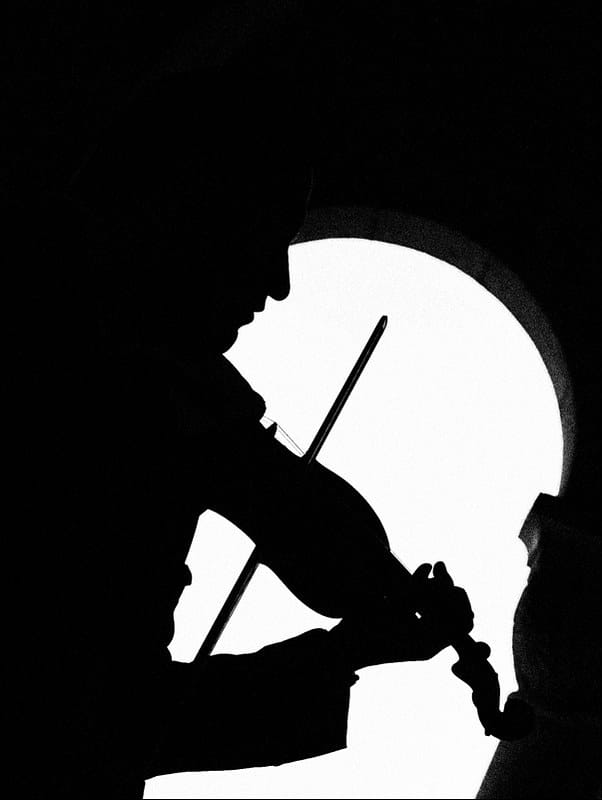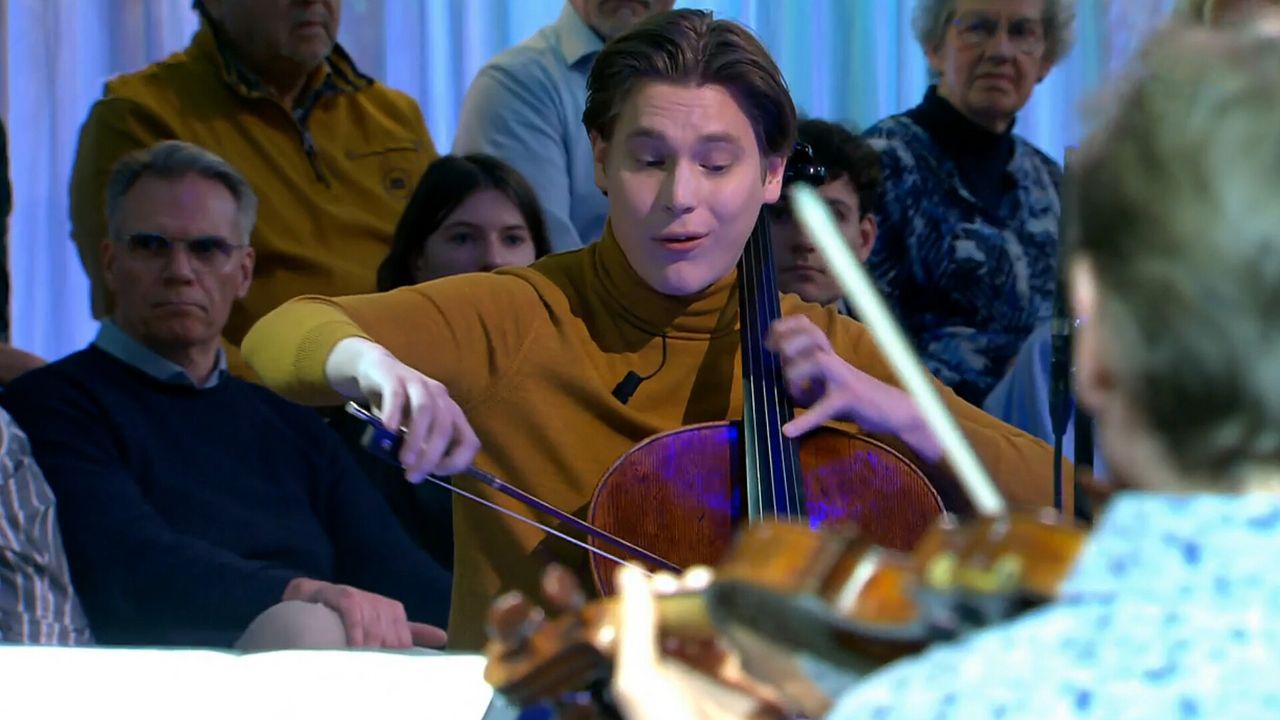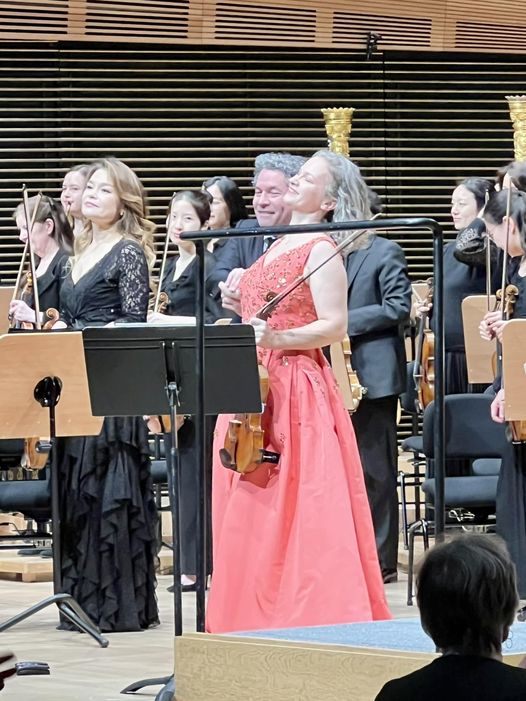Beethoven won’t go gentle into that good night
mainGroße Fuge for String Quartet in B flat major op. 133
Beethoven made a rare admission of error when he extracted the 15-minute finale from his 13th string quartet and had it published as a work in its own right. Not only did he recognise that the long fugue would have left the quartet lop-sided but he was able to acknowledge the awkward independence of this single movement, the most important fugue in the history of music after J S Bach’s Art of the Fugue.
Anything that calls itself a fugue is innately ambiguous. In music it is a work of two or more themes that interleave and play against each other, often with more voices entering the conversation. In psychiatry, the term is used to express loss of identity. Both meanings apply to Beethoven’s great fugue. Unable to hear a note that he is writing, he knows that his mission in life is fulfilled. He does not have to explain himself to the world any more. But who is he writing for? He is free to compose as unapproachably as the mood takes him.
He gave the work a French subtitle: ‘tantôt libre, tantôt recherchée’, meaning: a bit free, a bit remote. Which is not much help to grasping what he wants. He told a violinist: ‘You will find a new way of treating it.’ Even less help. He has written an enigma, and he knew it.
Some of the best quartets in history threw up their hands in despair. Adolf Busch, whose quartet covered the late quartets in the 1930, left the Grosse Fuge alone as a quartet and assigned it to a string orchestra. The Budapest String Quartet, also recording in the late 1930s, played the opening – contrary to common practice – as a slow, romantic proposition. Most hear anger in the introduction. Many force it to the point of ugliness. As late as 1947, a US composer Daniel Gregory Mason, called the Fuge ‘Long, complicated and through many hearings repellent if not unintelligible.’ Twenty years later, the Canadian pianist Glenn Gould, never knowingly understated, announced that ‘for me, the Grosse Fuge is not only the greatest work Beethoven ever wrote but just about the most astonishing piece in musical literature.’
So where do we turn for elucidation? The Barylli Quartet, made up of Vienna Philharmonic players and recording in 1952, have a settled point of view. As orchestral musicians, they prioritise togetherness over conflict and their account of the Fuge is both lucid and cohesive, if without the anarchy that Beethoven wrote into the piece. The Hollywood String Quartet, formed by the violinist Fleix Slatkin and his cellist wife Eleanor Aller, gave a marvellously intense 1957 performance in Edinburgh. The sound is recessed but the momentum is irresistible.
The Guarneri Quartet (1968) hedge their bets at first, alternating aggression with conciliation. Twenty years later, in a second recording for Philips, they miraculously resolve their difference and yield one of the landmark recordings, rich in psychological complexity and propulsive attentivess.
Out of Russia, the Borodin Quartet recording in 2000 give an account full of fascination and contradiction. Although only the cellist Valentin Berlinsky survives by the time from the original quartet formation, their shared history of making music under the censorship of Stalin and Sovietism, of perceiving Beethoven through the lens of Berlinsky’s friend Dmitri Shostakovich, rings through in this performance in surprisingly vivid sound. The foreboding sense of ‘this is not going to end well’ is mitigated every few minutes with ‘maybe it might’. The question is left open to the last I discovered this recording quite late in the day and am drawn back often to its indeterminacy.
The Alban Berg Quartet‘s later interpretation is too prescriptive, too self-confident for my liking, though its decisiveness set the tone for many younger ensembles. Faced with their own mortality, the Amadeus are hesitant and a little afraid, as we all must be. The Quartetto Italiano, in one of their late releases, are the most human of all, unfailingly moving in their depiction of Beethoven’s rage against, what the Welsh poet Dylan Thomas called ‘the dying of the light’. I doubt there is a more absorbing recording. After hearing this again, for the present survey, I stopped looking any further. It gives the impression of being the last word on the subject. (Of course, there will be more.)
Große Fuge for String Quartet in B flat major op. 133 (Arr. for String Orchestra)
The conductor Felix Weingartner, Gustav Mahler’s successor at the Vienna Opera, made an arrangement of the fugue for string orchestra. Unlike Mahler’s Beethoven adaptations, this was warmly received and widely performed by leading conductors, who used it to show off the cohesive quality of their string sections. It became a trademark piece for Wilhelm Furtwängler, who recorded it with Europe’s two premier philharmonic orchestras, Berlin (1952) and Vienna (1954). Both have edge-of-the-seat tension. Furtwängler invests each phrase in the fugue with a life-or-death question. Do we deserve to survive after the horrors we have witnessed? If so, how? There is no decisive resolution. In the end, as in spectator sports, it is the performance we are left to admire, not the result.
No-one performed this score like Furtwängler. When his Berlin successor Herbert von Karajan attempted it in 1971, he took three minutes longer and sacrificed existential meaning to a wash of chocolate-box beauty. At around the one-minute mark, I was close to throwing up. Don’t take my word for it: listen here.






Excellent write up. I’ve heard most of these recordings and I completely agree with your words.
However, I wish you didn’t acknowledge the arrangements for string orchestra.
It is undoubtedly a great work, albeit challenging listen. J.S. Bach made his fugues much easier in the ear.
Beethoven’s fugues are , on the whole, as good as Bach’s, he only wanted to have them more expressive and subjective, which goes against the grain of the form and this rubbing gives them the characteristic compelling quality.
The best Beethoven str quartet fugue is, in my view, the one in the slow movement of opus 95 (at 1:14):
https://www.youtube.com/watch?v=Ek6TR2HP2iU
The most striking aspect of the Quartet Italiano performance is how slowly they take the ‘meno mosso e moderato’ sections, a Furtwänglerian tempo distortion that ought to have musical purists reaching for their smelling salts. It impedes the irresistible momentum of the work, but it deepens the emotional tenor of these sections, as if echoing an interpolation of the cavatina of Op.130.
I trust the Grosse Fuge, Op. 134 for two pianos won’t be overlooked, since it’s more than a transcription for keyboard.
The paradox of Op.133/134 is that it simultaneously sounds the apotheosis of the Baroque, as well as contemporary — unclassifiable in terms of musical historical periods. ( Ligeti’s violin concerto is another work that at least to me sounds almost equally unclassifiable.) The Arditti string quartet demonstrated this in a 1990 release in which the Great Fugue came first, followed by Nancarrow, Ruth Crawford-Seeger, and finally with Xenakis’ ‘Tetras’.
With all due respect, but the Ardittis are crazy.
Stravinsky said about this piece “The ultimate contemporary music which will remain contemporary forever”
Agree with the judgement on Karajan‘s recording. One of the biggest failure if not the biggest in his Beethoven recording.
For goodness’ sake, it’s not an admission for error. The Große Fuge is the perfect ending to Op 130. The publisher wanted it published separately, and Beethoven needed the money.
Personally, I prefer to listen to the quartet with the Grosse Fugue as a I find the replacement too light weight. I dislike any orchestrated versions I’ve heard.
It must be the Végh Quartet. Years ago on holiday I met Sándor Végh at Prussia cove!
Sándor Végh (violin)
Sándor Zöldy (violin)
Georges Janzer (viola)
Paul Szabo (cello)
1973 recording,
https://www.youtube.com/watch?v=Rkuu2-1XNcE
At that hour when all things have repose,
O lonely watcher of the skies,
Do you hear the night wind and the sighs
Of harps playing unto Love to unclose
The pale gates of sunrise?
When all things repose, do you alone
Awake to hear the sweet harps play
To Love before him on his way,
And the night wind answering in antiphon
Till night is overgone?
Play on, invisible harps, unto Love,
Whose way in heaven is aglow
At that hour when soft lights come and go,
Soft sweet music in the air above
And in the earth below.
Chamber music III, James Joyce
Turlough O’Carolan, Farewell to Music
https://www.youtube.com/watch?v=RNo-4k6knvo
Ciara Taaffe
According to biographer Swafford, Beethoven made no admission of error in composition but rather an admission that the movement was too difficult for players and audiences alike at the time so substituted a simpler one. However, with the advances of quartet playing the modern quartets like the Takacs seem happy to play it as part of op 133 as originally intended.
Mr. Lebrecht: I could not find Karajan’s chocolate mess at the link you provided.
A sonorous reading to set beside DylanTthomas’s own, written for his dying father. “All the Welsh are naturalll ac-torrrs, and only the veddy worrrst become pro-fess-ionalll”, self-deprecatinrgly satd Richard Burton, consigning himself and Thomas to the Welshing mercenaries
The bard is an ancient Welsh and Irish icon, Celtic in general, worshiping language and those by whom it lives, as in Turner’s friend John Martin’s dramatic painting “The Last Bard” displayed at the Historical Society in a Wordsworth exhibition of mss. and didaries of Keats, Wordsworth’s sister Dorothy, and others, with a Wordsworth descenddent attending.
Sibelius’s rare tone-poem “The Bard” is a northern connexion.
GF is a beast; both to play and to listen to. Literally intolerable. God knows what Mr B meant by it. At least, I hope he/she does….
A fugue is a work of “two or more themes. . . .” Admittedly, there is no adequate definition of a fugue but this is the worst. Anyway, emotion, personal or otherwise, must be set aside in evaluating a fugue. Judging a fugue by its “emotion” is like a building inspector evaluating the structural integrity of a fifty-story build by the color of the paint to be used on its exterior.
There are two categories of music—equal—the music that depends on the warmth and sexual power of its superficial effect. Wagner/Ross. And that which depends on the structural ingenuity of the parts in their relation to the whole. Ocleghem/Schönberg. Unfortunately, by and large, type two has almost entirely given ground to type one, as expounded by the limited amount of drivel from Alex Ross I have read about Wagner. Who would ever dare write some of the sunbathing written about Wagner to Machaut?
Don’t forget Beethoven’s four-hand piano version of the Grosse Fuge, opus 134, rarely performed. My favourite recording is by Stephan Möller on a MIDI-piano, where he played both pars.
There’s a recording somewhere with Barenboim and Brendel…
I find this hard “to believe,” never mind “to find.” But will look around. …
Here is a performance of the piano version (by the way, arranged by B himself):
https://www.youtube.com/watch?v=ifGHHAWmkIw
I think the music works much better for piano, since the structure comes-out more clearly.
An extremely silly parallel to make, comparing the twaddle peddled by drunken old Dylan Thomas with the genius that was Beethoven!
Hey, but anything goes doesn’t it nowadays.
Are there any arrangements for full orchestra? A Stokowski like treatment might work well.
When it comes to the string orchestra arrangement, I’m very fond of Neville Marriner’s recording, which injects an element of dance into the music most convincingly.
Great voice of Burton but I prefer the less theatrics of the also great voice of the author reading his poems. Let the beauty of the words speak for itself.
Correction: the Quartetto Italiano recorded op. 133 early in their Beethoven cycle – 1969, at the time of the rest of late Quartets. Early and mid period came later. BTW, where is Vegh quartet in the list?
Thanks for James Joyce’s lovely “Chamber Music III. Garech de Brun. Joyce was a fine tenor, placing second in an Irish singing contest that Count John McCormack aotheer time took first place in.
But, what,– nothing from Yeats, not even Brendan Behan the Borstal Boy? There must be sometring from Oscar Fingal O’Flaherty Wills Wilde, though nothing comes to mind. Rupert Brooke has a different take on the experience and wasn’t even Irish, but a great lover all the same!
As for orchestral version, there is an astounding recording by Hermann Scherchen